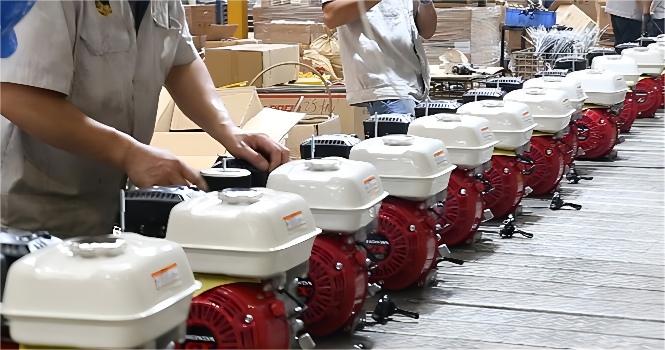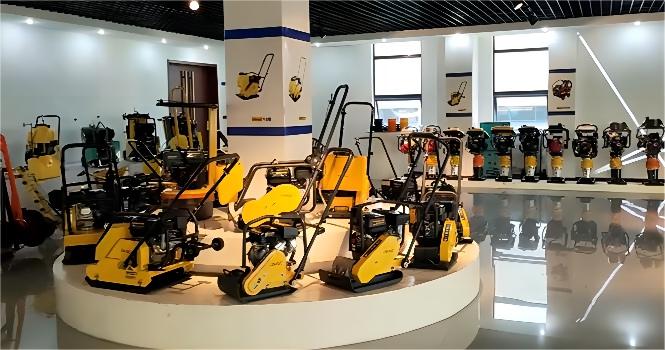Concrete Compactor PME-CY80
When you are looking for a plate compactor, we can assist you in selecting the most suitable concrete compactor for your business.
Concrete Compactor PME-CY80
The PME-CY80 Concrete Compactor is a reliable and efficient machine designed for professional and DIY applications. Powered by your choice of Honda, Robin, Loncin, or Diesel engine, this compactor delivers consistent and powerful performance, making it ideal for compacting concrete and other materials in various construction tasks.
Efficient Compaction Performance
With a compact plate size of 48 cm x 35 cm, the PME-CY80 generates a centrifugal force of 16.5 KN, providing a maximum compaction depth of 28 cm. Operating at a high frequency of 6,000 VPM, this machine ensures precise and effective compaction, making it suitable for a wide range of tasks, including concrete paving, small foundations, and landscaping. The compactor’s travel speed of 25 meters per minute enhances efficiency, allowing you to complete jobs quickly and effectively.
Versatile Applications
The PME-CY80 is designed to handle both granular and cohesive materials, making it versatile for various applications. Whether you’re working on compacting concrete slabs, driveways, or small construction sites, this machine is up to the task. Its compact size also makes it easy to maneuver in tight spaces, while its ability to operate on sloped surfaces with a maximum inclination angle of 20° ensures stable and efficient performance on uneven terrain.
Built for Durability
Weighing in at a net weight of 85 kg and a gross weight of 75 kg, the PME-CY80 is constructed from high-quality materials to withstand heavy use. Packaged in a convenient size of 60 cm x 40 cm x 105 cm, the machine is easy to transport and store. The PME-CY80 also comes with a 1-year product warranty, giving professionals and DIY enthusiasts alike confidence in its long-term durability and performance.
Applications
- Retaining Walls
- Footings and Foundation Projects
- Landscapes and hardscapes
- Patchwork on Asphalt
- Pipeline Applications
- Road Repair and Trenchwork
- Cohesive Soils and Granular Soils
- Sticky soils – such as clay or clayey silt
- Gravel, sand, silt, clay, or mixed soils
- Base, Subbase, Subgrade, Subsoil
- Backfill Pools, Parks, Cemeteries, and Golf Courses
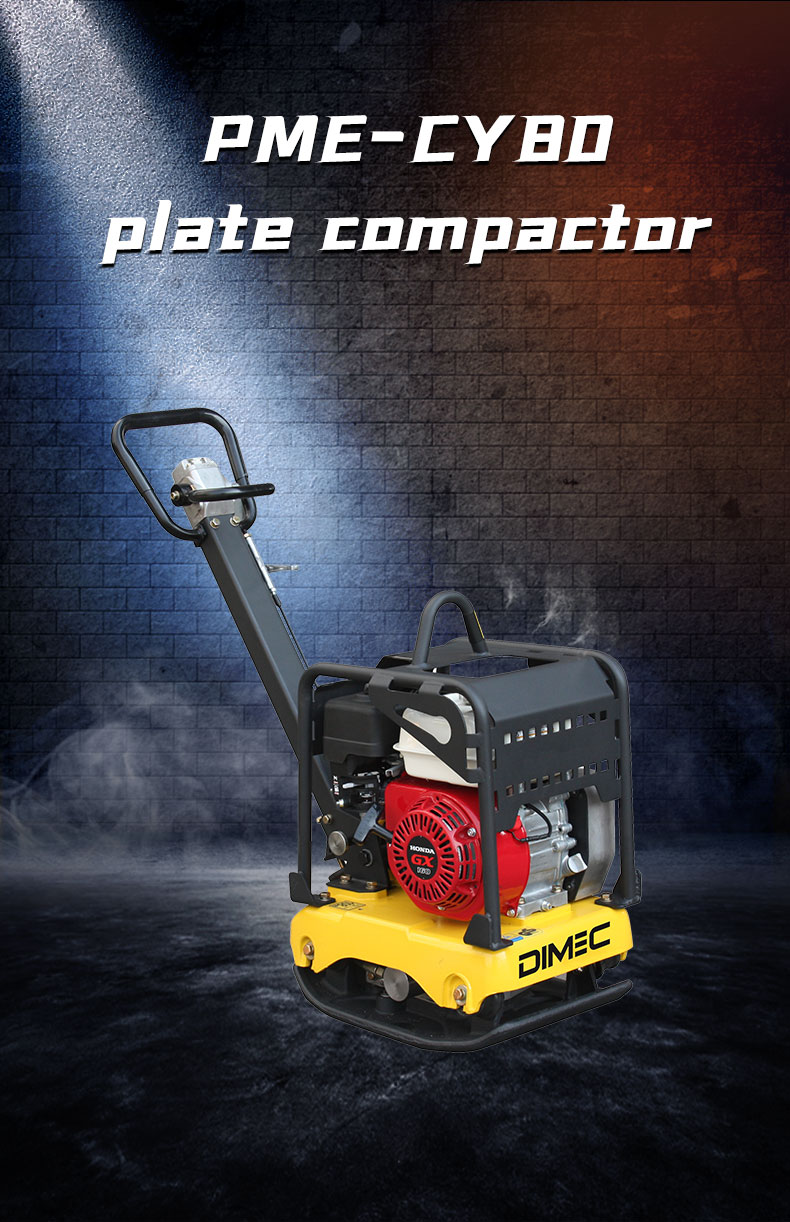
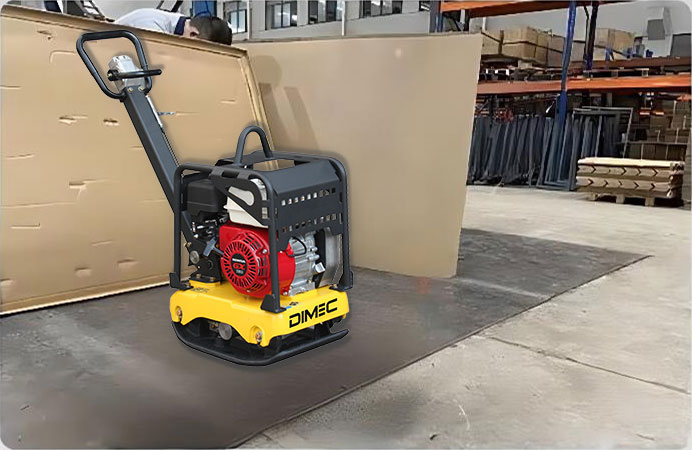
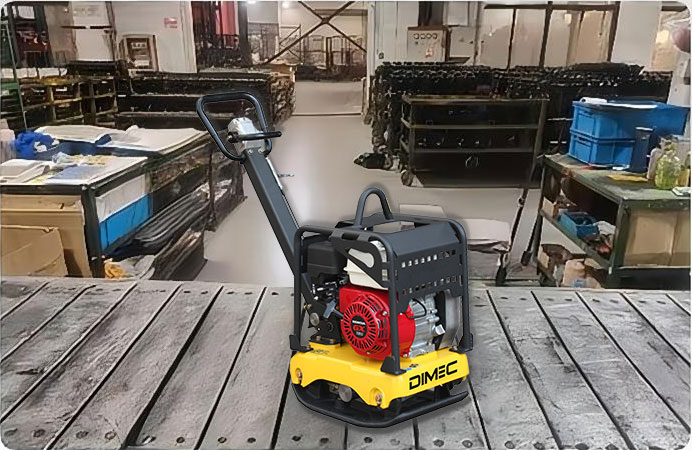
Key Specifications
| Model | Concrete Compactor PME-CY80 |
|---|---|
| Engine | Honda / Robin / Loncin / Diesel engine |
| Engine type | Air-cooled, single cylinder, 4-stroke, petrol engine / diesel engine |
| Frequency [VPM] | 6000 |
| Centrifugal force [KN] | 16.5 |
| Plate size (LxW) [cm] | 48x35 |
| Max.compaction depth[cm] | 28 |
| Travel speed [m/min] | 25 |
| Max.inclination angle | 20° |
| N.W./G.W. [kg] | 75/85 |
| Package (LxWxH) [cm] | 60x40x105 |
ADVANTAGE

Low vibration comfortable operation
Heavy-duty shock absorber system that effectively improves operating comfort by reducing shock to arms.
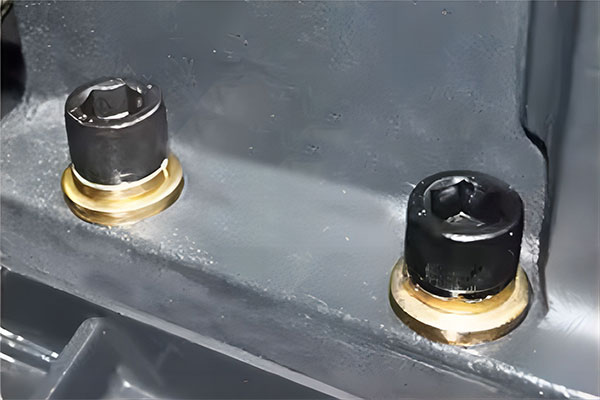
12.9 Grade bolts
High-strength bolts with exceptional durability, providing reliable fastening even under intense pressure and demanding conditions.

High strength engine frame
The material of thickened steel pipe has strong supporting force and stable gravity bearing capacity.

Strong power brand engine
Well-know brand engines Honda, Robin, Loncin low noise, low maintenance, low consumption.
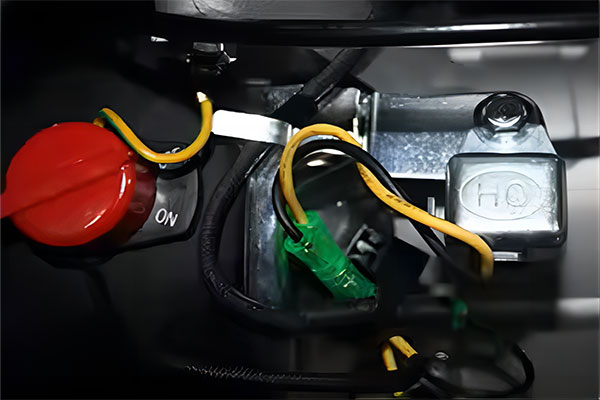
Low oil sensor
Advanced low oil sensor technology ensures automatic engine protection by preventing operation when oil levels are insufficient, extending engine life.

Professional spraying process
Utilizes advanced spraying techniques to deliver a smooth, even coating that resists wear, corrosion, and fading, ensuring long-lasting protection and aesthetic appeal.
QUESTIONS & ANSWERS
Regular maintenance should be performed after every 20 hours of operation, including cleaning and checking oil levels.
No, wet soil can lead to poor compaction and uneven results. Always ensure the soil is slightly moist but not too wet.
You can use a compaction meter or conduct a density test to confirm that the soil has reached the desired level of compaction.
For most projects, the ideal depth is around 4-6 inches per pass. However, this can vary based on the soil type and project requirements.
Hand tampers or vibratory tools can be used for smaller projects, but they are less effective than a concrete compactor for larger tasks.
Other Similar Products
Concrete Saw PME-Q350
Road Saw PME-Q300
Ride On Vibro Roller PME-R6000
Road Roller Compactor PME-R3500
Construction Road Roller PME-R3000
Double Drum Road Roller PME-R2500
20+ Years of Experience
Construction Machine Manufacturer
Professional manufacturer of small construction machinery, main products include plate compactor, tamping rammer, road roller,floor saw, concrete vibrator, generator etc.
Hydraulic Reversible Plate Compactor
A Hydraulic Reversible Plate Compactor is a powerful and versatile machine used in construction for compacting soil, gravel, asphalt, and other materials. Its unique design, featuring a hydraulic system and the ability to reverse direction, makes it an essential tool for a wide range of compaction tasks, particularly in confined spaces or areas with obstacles.
Hydraulic reversible plate compactors are a reliable choice for contractors needing efficient, high-performance compaction equipment. Their combination of power, ease of use, and versatility makes them a top option for both large and small-scale construction tasks.
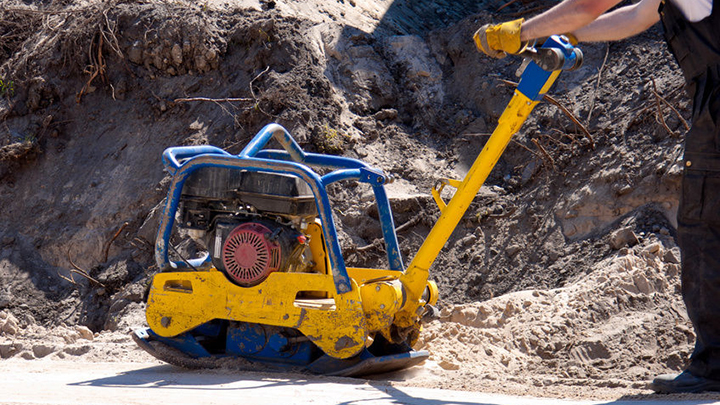
Best Practices for Using a Concrete Compactor Effectively
Concrete compactors are essential tools in construction, paving, and landscaping projects. Whether you’re working on a major road project or laying a driveway in your backyard, using a concrete compactor properly is key to achieving a solid and durable surface. This guide will take you through best practices to ensure effective use of a concrete compactor, from selecting the right machine to maintaining it for long-term use.
What is a Concrete Compactor?
A concrete compactor is a machine designed to compress soil, gravel, or asphalt, creating a solid foundation for construction projects. It works by applying force to eliminate air pockets in the material, making it denser and more stable.
Importance of Proper Use
Using a compactor effectively is crucial for achieving a level, durable surface. Improper use can lead to an unstable base, which can cause cracks or uneven surfaces later on. A well-compacted surface increases the lifespan of your project and enhances structural integrity.
Understanding the Different Types of Concrete Compactors
Plate Compactors
Plate compactors are ideal for smaller projects, such as walkways or patios. They are easy to operate and provide a flat, uniform compaction, making them suitable for residential or light commercial use.
Jumping Jack Compactors
Jumping jacks are perfect for narrow spaces or trenches where a plate compactor may not fit. They use a high-impact force and are more effective on cohesive soils, such as clay.
Ride-on Rollers
These are used in large-scale projects like road construction. Ride-on rollers are heavy-duty machines designed for high productivity and are typically used on asphalt or large gravel surfaces.
When to Use a Concrete Compactor
Preparing Sub-base for Construction
The sub-base is a critical layer in any construction project, and compaction ensures that it is stable. Whether it’s for a foundation or driveway, compacting the sub-base prevents future settlement and surface cracks.
Compaction for Paving Projects
Concrete compactors are necessary when laying pavers, ensuring the base is solid enough to handle heavy foot traffic or vehicles. Without proper compaction, pavers may shift or sink over time.
Landscaping and Residential Use
Homeowners often use compactors for landscaping, such as building pathways or leveling the ground for small garden structures. Compaction ensures a smooth, long-lasting surface.
Safety Precautions to Follow
Personal Protective Equipment (PPE)
Always wear safety gear, including gloves, goggles, and ear protection. Compactors can be noisy, and debris may fly during operation.
Operating the Machine Safely
Never operate a compactor on unstable or sloped terrain without proper preparation. Make sure to follow the manufacturer’s instructions carefully to avoid accidents.
Environmental Considerations
Be mindful of surrounding areas, especially in residential settings, where noise and vibrations can disturb neighbors.
How to Prepare the Site for Compaction
Clearing Debris
Remove rocks, roots, and other debris from the area before compaction. This ensures that the compactor operates smoothly and evenly.
Ensuring Soil Moisture is Optimal
For effective compaction, the soil should not be too dry or too wet. Use a moisture meter to check if the soil is in the right condition for compaction.
Marking the Area for Compaction
Clearly mark the area where you intend to compact. This helps in achieving uniform compaction and avoiding unnecessary passes.
Choosing the Right Type of Compactor for Your Project
Analyzing Soil Type
Different soil types require different compactors. Cohesive soils like clay benefit from jumping jack compactors, while granular soils like sand are best compacted with a plate compactor.
Project Size and Scope
The size of your project also determines which type of compactor to use. For large projects, a ride-on roller can save time and effort.
Equipment Weight and Force Output
Consider the weight and force of the compactor in relation to the material you’re working with. Too much force on light material can cause over-compaction.
Operating the Concrete Compactor
Starting the Compactor
Before starting, make sure the machine is on a level surface. Follow the manufacturer’s instructions for starting, and let the engine warm up.
Best Techniques for Maneuvering
Move the compactor in straight, overlapping passes. This ensures consistent coverage without missing any spots.
Covering All Areas Evenly
Always overlap each pass by 6-12 inches to prevent gaps in compaction.
Common Mistakes to Avoid
Overcompacting the Surface
Too much compaction can make the surface too hard and difficult to work with. Follow guidelines for your specific project to avoid overcompacting.
Inconsistent Compaction Across the Project
Ensure that all areas receive equal attention. Inconsistent compaction can lead to weak spots that may later cause problems.
Neglecting Soil Preparation
Skipping soil preparation can result in an uneven surface, leading to poor compaction results. Always take time to prepare the site.
Maintaining Consistent Compaction Levels
Checking Compaction Depth Regularly
Use a ruler or a compaction meter to check the depth of your compaction. This ensures that the surface is uniform throughout the project.
Using a Straight Edge for Leveling
After compaction, use a straight edge to check for any unevenness in the surface. Make adjustments as necessary.
Adjusting Compaction Speed as Needed
Depending on the material, you may need to adjust the speed of the compactor. Faster speeds are better for granular materials, while slower speeds work well on cohesive soils.
Post-Compaction Considerations
Checking for Surface Cracks
Inspect the surface for any cracks or imperfections that may have occurred during compaction. These should be addressed before moving forward.
Verifying Compaction with a Test
Use a compaction test to confirm that the soil has reached the desired density. This is especially important for larger projects.
Smoothing the Surface for Final Use
Once compaction is complete, smooth the surface to remove any imperfections, ensuring it’s ready for the next phase of construction.
Maintaining the Concrete Compactor
Cleaning After Use
Always clean the compactor after use to remove any dirt or debris that may have accumulated.
Regular Engine Maintenance
Check the engine regularly and perform any necessary maintenance, such as changing the oil or replacing air filters.
Storing the Compactor Properly
Store your compactor in a dry, safe place to prevent rust or damage.
Troubleshooting Common Issues
Uneven Compaction
If your compaction is uneven, check the soil moisture and adjust your technique.
Engine Starting Problems
Ensure that the fuel and oil levels are correct and that the spark plug is clean.
Vibrating Issues
If the machine vibrates excessively, check the base plate for damage or loose components.
Increasing the Lifespan of Your Concrete Compactor
Best Storage Practices
Keep your compactor in a sheltered area to protect it from weather damage.
Proper Lubrication
Lubricate all moving parts regularly to ensure smooth operation.
Regular Professional Inspections
Have your compactor inspected by a professional periodically to catch any potential issues early.
Advanced Techniques for Optimal Results
Using Compaction Meters
A compaction meter can help you track how dense the soil is becoming, ensuring optimal compaction.
Soil Stabilization Techniques
In some cases, adding stabilizing agents like lime or cement can improve the compaction results.
Combining Compaction with Water for Dust Control
For dry environments, adding water during compaction can help reduce dust and improve soil adhesion.
Conclusion
Using a concrete compactor effectively requires proper preparation, consistent operation, and regular maintenance. By following these best practices, you can ensure that your compaction projects are successful and long-lasting.
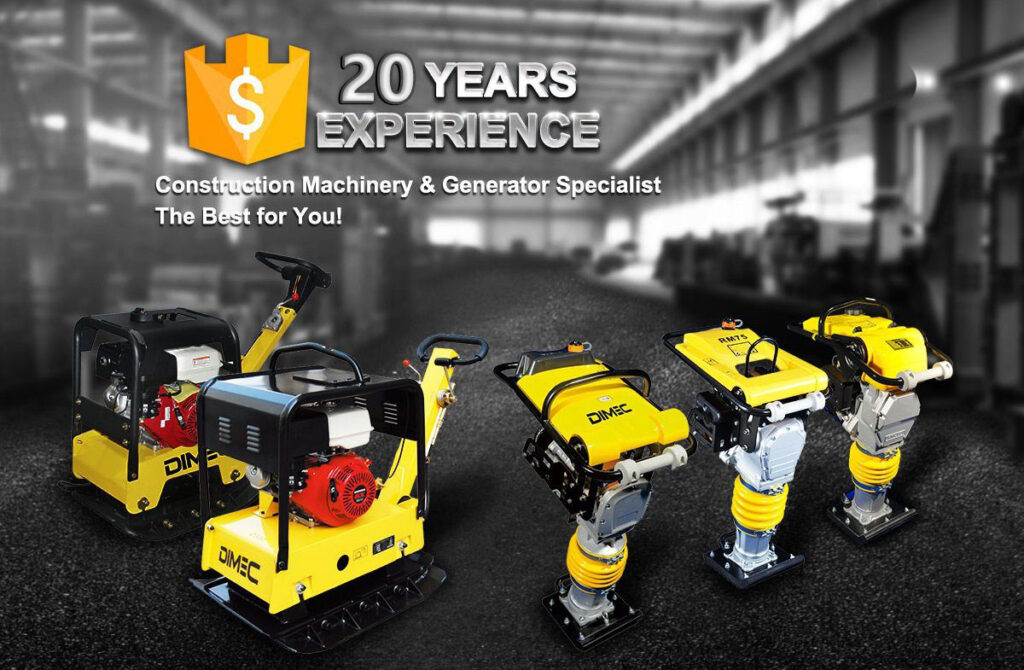
About Us
Wuxi Pinnacle Mechanical Equipment Co., Ltd. (PME) As a first-class specialty enterprise we serve global clients. PME specialize on production of plate compactor, tamping rammer, floor saw, concrete vibrator for global construction industry. We also produce engine, generator, and water pump. PME’s strengths are rooted from our strong team and rich resources.
We have complete production and assembly lines for different machines. There is a team of chief engineers, senior technicians and QC inspectors, equipped with a variety of finishing, spare parts inspection and product testing equipment, to safeguard production and innovation. Thus, we can control every step of production, from finish machining of spare parts, steel plate cutting and welding, spraying paint, all the way to product assembly. This results in effective product quality control.
With more than 20 years of exporting experience, PME has been exporting to over 68 countries and regions including North America, South America, Europe, Southeast Asia, Middle East, Africa. We also form strategic corporations with many multinational companies.
Factory Show
Let our expertise in custom Forward Plate Compactor take your projects to the next level.
Why Choose Us
Professional construction machinery manufacturer with OEM service
We are a leading manufacturer in the construction machinery industry, offering top-notch Original Equipment Manufacturer (OEM) services. Our commitment to innovation and precision engineering ensures that our machinery meets the specific needs of our clients, providing customized solutions that enhance efficiency and performance on the job site.
20 years production and exportation experience
With two decades of experience in production and exportation, we have built a strong reputation for delivering reliable and high-quality construction equipment worldwide. Our extensive knowledge and expertise in the industry enable us to understand the unique challenges of different markets, ensuring our products are tailored to meet global standards.
20+ types of construction site equipment are available for selection
We offer a diverse range of over 20 types of construction site equipment, catering to various industry needs. From heavy-duty machinery to specialized tools, our product lineup is designed to support every phase of construction, providing our clients with the flexibility to choose the right equipment for their projects.
10+ years QC monitor products quality
Our rigorous quality control processes have been refined over more than 10 years, ensuring that every piece of equipment we produce meets the highest standards. Our dedicated QC team meticulously monitors every stage of production, guaranteeing that our products deliver consistent performance and durability in the field.
8+ years experienced skilled workers
Our team comprises highly skilled workers with over 8 years of experience in the construction machinery industry. Their expertise and dedication are reflected in the precision and craftsmanship of our products, ensuring that every detail is executed to perfection.
8 workshops, 12 production lines
With 8 state-of-the-art workshops and 12 production lines, our manufacturing capabilities are designed to meet large-scale demands efficiently. Our advanced facilities allow us to maintain a streamlined production process, ensuring timely delivery of high-quality machinery to our clients around the world.
Unlock Superior Construction Efficiency with Our Expertly Engineered Machinery
Discover a world of advanced construction equipment tailored to meet the demands of modern job sites. With 20 years of industry experience and a commitment to quality, our machinery is designed to boost productivity and ensure reliability in every project. Explore our diverse range and experience the difference of precision-engineered solutions.




